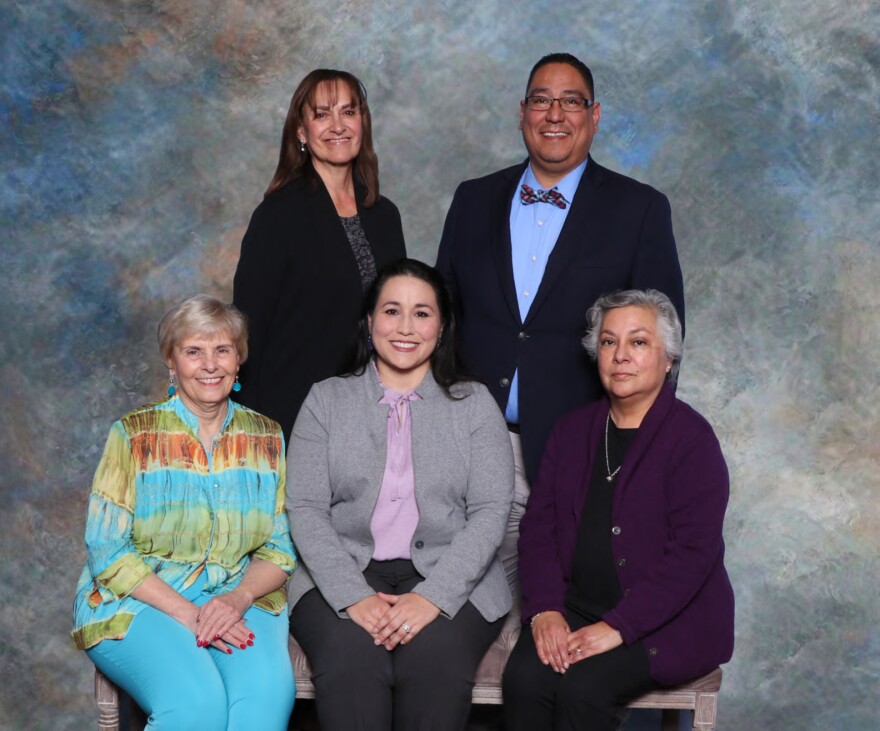The Las Cruces Public School Board stood by their decision to implement a LCPS policy designed to promote equity in the classroom amidst critical public comment. The policy, which was adopted in April, calls for additional curriculum to be created that takes into account both the home cultures and languages of students.
During a second reading of the policy, School Board Member Maria Flores spoke about the impact it will have in the classroom.
“It's not to learn to hate anyone,” Flores said. “On the contrary, it is first and foremost, a local thing, that each class can be tailored to the students themselves. The students that are there are the ones that will dictate what they want to learn, and only to learn about themselves and others, that is what ethnic studies is about.”
Dulcinea Lara, an associate professor at New Mexico State University, has taught ethnic studies for two decades. She says that ethnic studies is about fostering a dialogue and exploring historically overlooked topics.
“We don't see enough Native American, Mexican American, African American or women, we don't see enough of these important folks in our history curriculum,” Lara said. “I think that's indoctrination by absence or erasure. And so, with ethnic studies, we're trying to kind of balance out the curriculum.”
Public criticism of the policy centered in part around targeting the specific cultures of students in a classroom setting, as one public commenter described to the board.
“Who's going to be pointing the finger at who is who and who goes into what category,” the commenter said. “I think that's something that everybody should take a good look at, because if you're going to start pointing the finger, I'm pointing it right back at you.”
Isabella Solis, a former Doña Ana County Commissioner who previously ran for the New Mexico House of Representatives, spoke out against the policy during public comment, calling for a public hearing.
“This is a major decision that's being made by a board, and you're talking about the future of our children and our next generation,” Solis said. “You must listen to your constituents.”
While school board members emphasized the critical need to hear all perspectives, they also reminded the public that the policy is a legal requirement to address learning discrepancies identified in the Yazzie-Martinez lawsuit. The lawsuit, against the state of New Mexico, found that the state failed to provide a uniform education system that sufficiently met student’s needs.
School Board Member Terrie Dallman stressed the district must comply with the mandate.
“We would be out of compliance as a state, as a district. And so, it is high time that we address equity in our school system across the state,” Dallman said.
NMSU Associate Professor Dulcinea Lara says improving the district’s graduation rate is critical, as LCPS Hispanic students are 8% less likely to graduate than their Caucasian counterparts. She shared how an increased focus on ethnic studies can help with a student body’s overall performance—specifically highlighting progress made in Tucson, Arizona which she says mirrors demographics in Las Cruces.
“Some of the benefits of grade nine through twelve ethnic studies are 1.4 points GPA increase, 21 days more of attendance on average, 40-50% increase in graduation rates, specifically in Tucson, specifically for Native American and Mexican American students, and the most impressive increases happen for STEM for standardized tests,” Lara said.
The board is exploring forum ideas to help educate the community on the policy. A third reading will occur during the board’s next work session, according to School Board President Ray Jaramillo, where he says the policy will continue to be refined.
“I think that it's just been getting better and better, and I think that a lot of those things have come from everyone, on all perspectives,” Jaramillo said. “We can all look at the same policy, and obviously we’re bringing in different perspectives."



